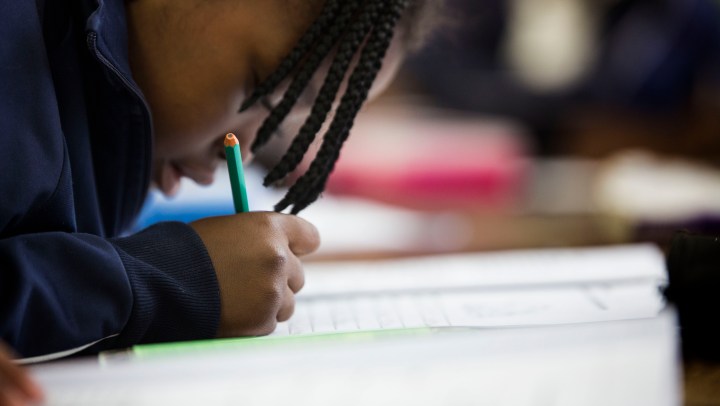OP-ED
Partnerships with the private sector can help fix SA’s education challenges

The private sector needs to adopt a model where we work closely with the responsible entities and the experts – the Department of Basic Education, NGOs, authorities and communities – to identify and address the challenges affecting our schools.
On his last day in office two years ago, retired Deputy Chief Justice Dikgang Moseneke delivered a thoughtful judgment highlighting the importance of education to a nation’s development. Moseneke quoted a storied African proverb which makes this point so vividly: “thuto ke lesedi la sechaba … imfundo yisibani”. Simply put, “education is the light of the nation”.
For Moseneke, education has a “collective usefulness to communities” beyond its function as a social institution to impart academic knowledge, skills and norms to a nation’s children. For millions of South Africans, a decent and affordable education is not just a constitutional right. It is a ticket to a better life.
More than 20 years after the advent of our democracy, delivering this education is proving to be a bigger challenge than we could have imagined. Faced with a range of lingering social, historic and economic constraints, we see widespread consensus on the systemic nature of the problems affecting education, and a real need for everyone to take hands in effective partnerships that cut across the private sector, government and civil society.
Government is doing what it can, but the task is monumental. The backlog is immense, and demand for schooling is only growing. Our learners, especially in disadvantaged communities, need better trained teachers, more effective school leadership, basic infrastructure and more resources. Government alone cannot provide this. The fiscus is simply not able to provide enough more so with the additional pressure related to free higher education being provided to low-income families.
Justice Moseneke sees education as a collective enterprise, observing that “it takes a village to bring up a child”.
So, rather than focusing on the shortcomings of our education system, we should be taking a more pragmatic approach. We need to share not only the financial burden, but the broader accountability for educating our children. In South Africa, this broader accountability is manifesting itself through a growing interest in partnerships as part of the solution to the challenges facing our education system.
The concept of multi-sector partnerships, where big business involves itself in services traditionally provided by the state, is not new, nor is it limited to so-called emerging economies. Across the world, from Uganda to the United States, governments are looking to address inadequate levels of access and quality in education through partnerships with the private sector.
For us, the emphasis is on the word “partnership”, where we, the private sector, adopt a model where we work closely with the responsible entities and the experts – the Department of Basic Education, NGOs, and the relevant stakeholders, authorities and communities – to identify the challenges affecting our schools, and help address those.
These challenges are well-documented. They range from poorly functioning institutions and ill-equipped school leadership, to teachers with poor content knowledge, pedagogical skills and in some cases, also low levels of accountability; from poor basic amenities, to a lack of access to resources and teacher support material such as textbooks, workbooks, tools and methodologies. It’s important to realise that each school has its own unique set of challenges, which require specific solutions and interventions.
One of the concerns voiced by critics of these partnerships is that they result in the de facto privatisation of our educational institutions. In South Africa, we feel the scope exists for partnerships that focus less on running the schooling system, which is government’s mandate, and are more supportive of a broader community effort to help improve educational outcomes.
Successful education partnerships should have clear objectives: for example, to have 90% of learners aged five meeting the minimum requirements for school readiness by 2022, or 65% of Grade 12 learners passing with at least 50% in mathematics. That way, we know whether the partnership is delivering its primary aim—which in this case, is improved learning outcomes for more learners.
Basic Education Minister Angie Motshekga is clearly open to working with the private sector to improve educational outcomes. Speaking at a launch of a new education partnership last month, she talked about the wisdom of investing in the public-school system.
“To invest in public education, you are investing where the people are, where the children are,” she said.
“This is what will make a real difference to the future and prosperity of South Africa.”
This is a strong call to action to all social partners – business, labour, NGOs, civil society and government. More than two decades after the dawn of a democratic South Africa, we must do better than simply acknowledge the fundamental right of every child to a quality education. It is our collective responsibility to act and help deliver it. DM
Norman Mbazima is Deputy Chairman of Anglo American South Africa.
















 Become an Insider
Become an Insider